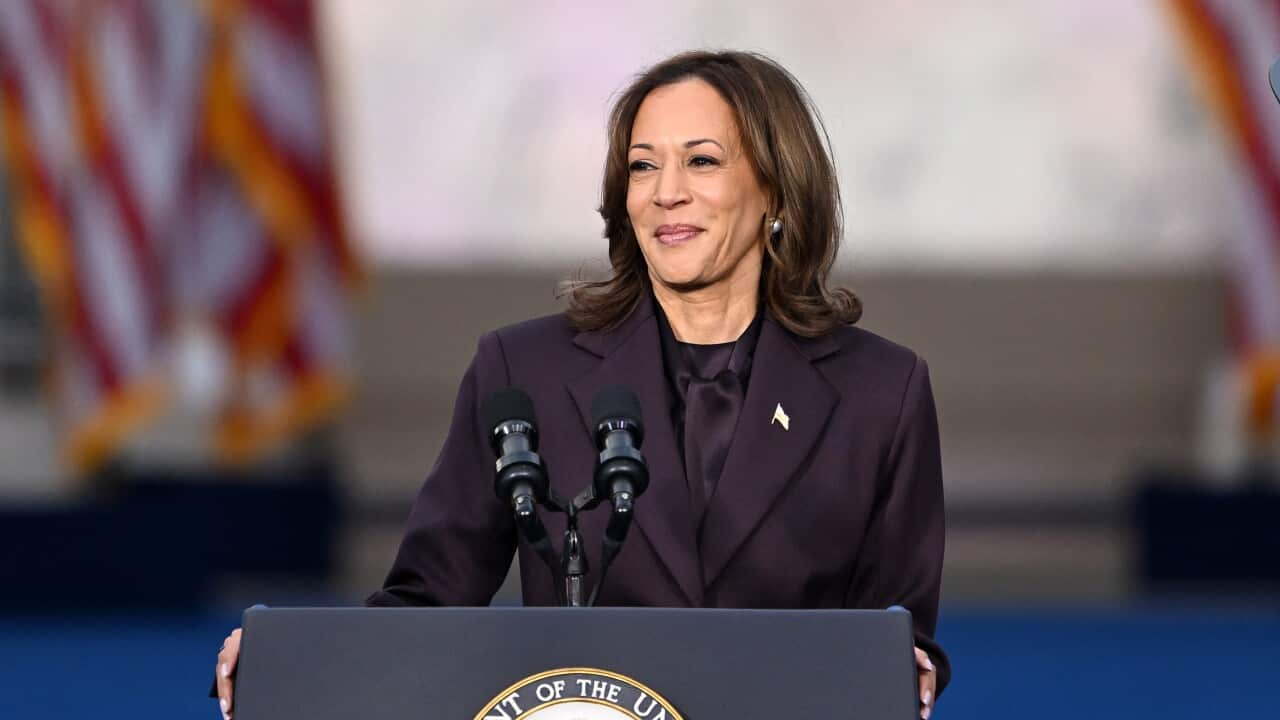Four years after he was voted out of the White House, according to projections.
The outcome defied polls that showed a razor-close race ahead of Tuesday's election day.
Trump prevailed in at least five of the seven battleground states to push him over the 270 Electoral College votes needed to win the presidency and was leading in the remaining two, Arizona and Nevada, where votes were still being tallied.
We examine how the Democrats lost the presidency and how Trump pulled off a comeback.
The economy
The American Psychological Association reports around 73 per cent of Americans rate the economy as a significant stress to their lives.
According to exit polls, voters thought the Republican candidate, Trump, would do a better job of managing the economy than the Democratic candidate, Kamala Harris.
Edison Research's latest poll showed 51 per cent favoured Trump on the economy, compared to 47 per cent who favoured Harris.
Bruce Wolpe, a senior fellow at the University of Sydney's United States Studies Centre, said examining Trump's presidency (2017–2021) offers insight into why this is the case.
"There's a nostalgia effect," he told SBS News.
"People now remember before COVID-19 that the economy had high employment, low inflation, low interest rates.
"When Biden was elected in 2020, if you look at inflation over the past 3.5 years, prices of household goods, supermarket items, petrol, insurance, things like that are up 10- 40 per cent, and that is the lived experience.
"Voters don't like that."
Edison Research's exit polls show 45 per cent of people who voted feel their family's economic situation has worsened in the last four years.
'Sleepy Joe'
President Joe Biden's attempt to run for a second term became untenable when he floundered in the presidential debate against Trump.
Brendon O'Connor, professor of US politics at the University of Sydney, said that even before Biden, whom Trump frequently refers to as 'sleepy Joe,' became a liability for the Democrats, the party was facing significant challenges."
"The idea that Biden was suitable to run for a second term was, I think, to most Americans, kind of nonsense, and his performance in that debate was confirmation for many people of what they'd already been thinking for over a year," O'Connor said.
"So it was extremely arrogant of Biden and foolish to think that he should run for a second term. He should have made it very clear that it was just one term only that he was running for."
O'Connor said the Democrats hurt their own chances by not holding a primary vote earlier in the year.
"They should have had some kind of open process where they debated what kind of issues needed to be at the forefront of their campaign and tested their candidates," he said.
"Harris may have lost the primary, but then the party would have moved into the election with an even stronger candidate."
O'Connor also said Harris spoke about only a limited number of policy ideas on the campaign trail and should have been more willing to criticise and distance herself from the Biden administration.
Trump's success among minority groups
Rodrigo Praino, professor of politics and public policy at Flinders University, said an incumbent government tends to lose power when voters are worried about the economy, even if all the indicators are actually good.
Praino said economic concerns tend to disproportionately affect minority communities.
Dennis Altman, emeritus professor of politics and director of the Institute for Human Security at La Trobe University, said there was definite movement in the polls from those communities as a result.
"What Trump did in this election was to win over a much larger number of Latino and Black voters than I think any Republican has this century," he said.
But Praino said it's not simply a story about the economy.
"There is, of course, the gender issue. Trump has pitted one gender against another — men against women — in a way that has never been done before, in my opinion," he said.
"There is also the issue that many comment that it seems that Americans are simply not happy to elect and vote for a woman."
Dr Denise Goodwin, a senior research fellow at Monash University's BehaviourWorks Australia, said other deeply held cultural values also played a role in Trump's return to the White House.
She said racial anxieties and biases were highlighted and strengthened by social media, blunting the concern people might have held about what Trump said and the way he said it.
"Social identity bias is what we call that — where we tend to believe things or people that fit within our group," Goodman said.
Political analyst and pollster Michael O'Neil said Trump's message on migrants was ultimately persuasive.
"Immigration was a big issue, and the problem the Democrats had is that for years they have been in power and perceived as not doing anything," he said.
"One thing that people want when they perceive a problem, they want somebody doing something. Even if it might not be the right thing, they certainly want action."
Harris lost Michigan, a state that Biden had flipped to the Democrats in 2020.
Ahead of the election, SBS World News spoke to voters who planned to support Trump, citing their disillusionment with the Democrats' Middle East policy.
expressed concern for their relatives in Gaza and Lebanon, horrified by the images they see on TV each night.











